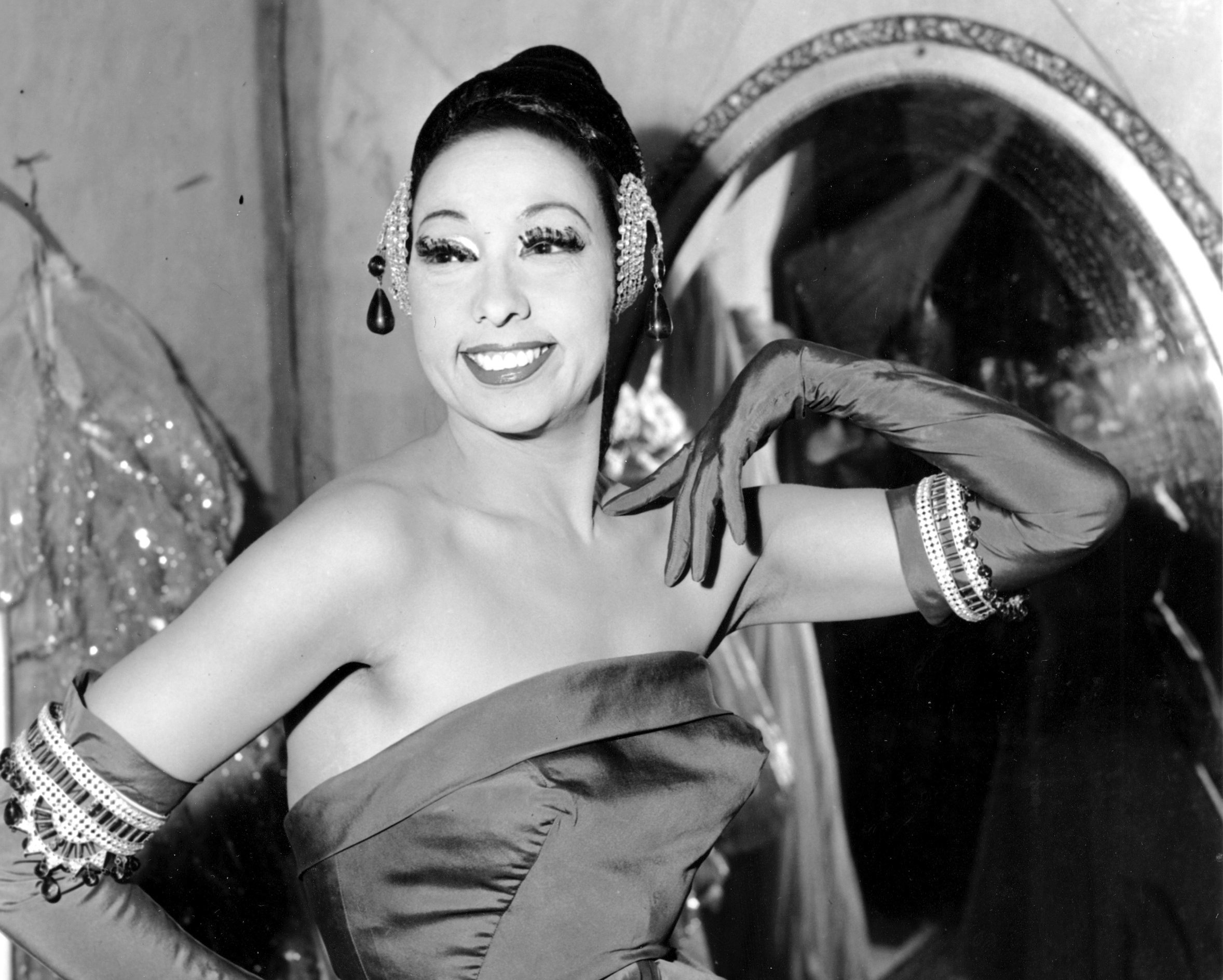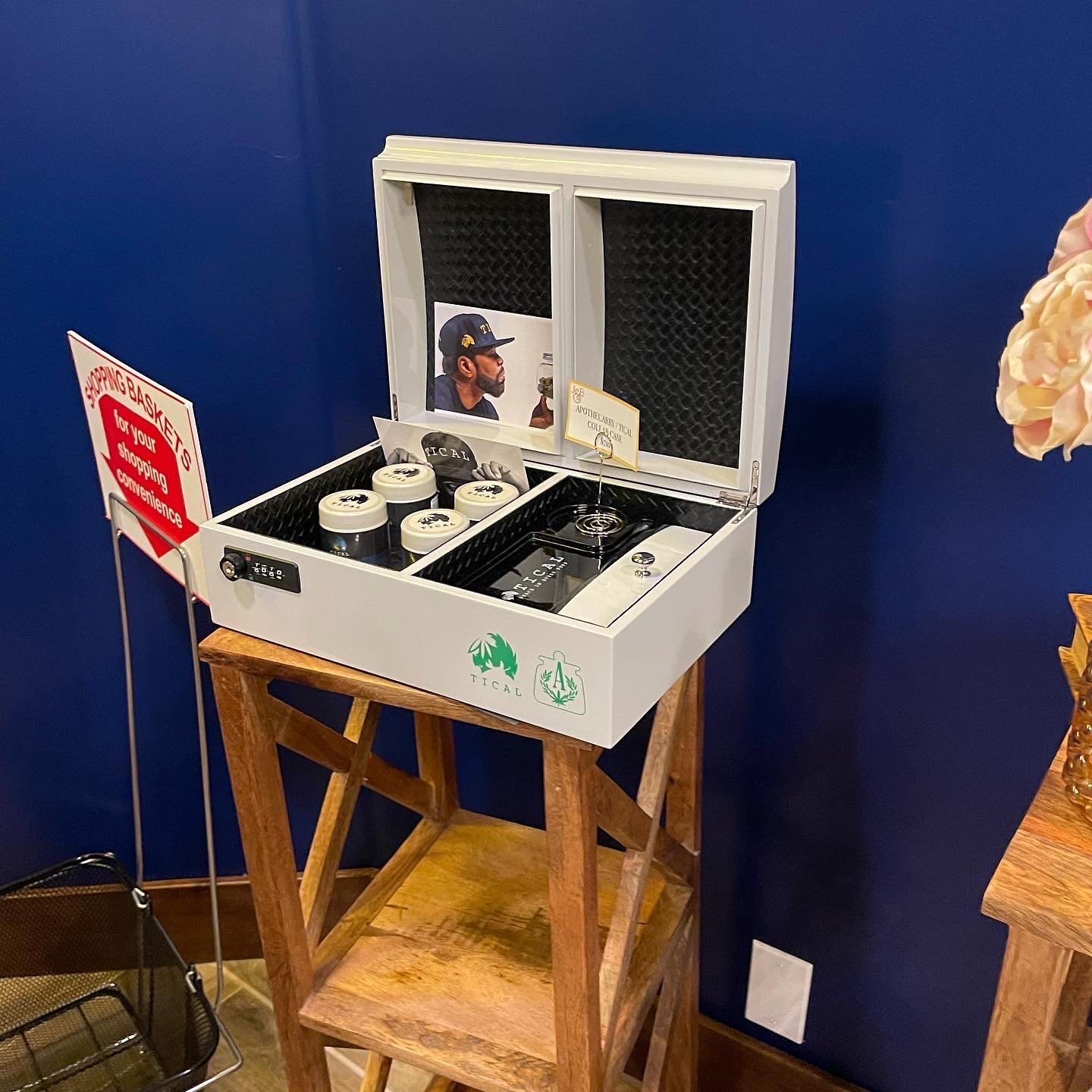JOSEPHINE AND BILLIE’S: RIGHTING THE WRONGS OF PROHIBITON
In a 1978 interview, Miles Davis called Billie Holiday the nicest woman in the world, saying …
All she wanted to do was sing. They picked on her and picked on her to get money out of her. You do drugs 'cause you like to, not 'cause it's a life-style.... They picked on Billie so much.
“They” could refer to so many folks. Mostly men who mistreated her and abused her from her teenage years to her sad death in 1959. But one man in particular who did Billie wrong was a government official. A man who worked under the illusion of patriotism while inflicting pain and violence onto the black community. And Billie Holiday was the trophy over which he obsessed.
His name was Harry J. Anslinger, and in 1930 he was appointed as the first director of the Federal Bureau of Narcotics, as the prohibition of alcohol was beginning to collapse. With alcohol out of the prohibition picture, the agency needed a new target, and chose cannabis as it was, at the time, primarily found in the nation’s black and brown communities. Places where Anslinger knew there would be little backlash.
Anslinger was also an outspoken racist, known for such infamous quotes as …
“There are 100,000 total marijuana smokers in the U.S., and most are Negroes, Hispanics, Filipinos, and entertainers. Their satanic music, jazz and swing, result from marijuana use. This marijuana causes white women to seek sexual relations with Negroes, entertainers and any others.”
“... the primary reason to outlaw marijuana is its effect on the degenerate races.”
“Reefer makes darkies think they're as good as white men.”
These were the words of the nation’s first drug czar, and his prohibition of cannabis, which was built on the bedrock of little more than racism and intolerance, still exists to this day. But what’s often hidden in the shadows of this inconvenient truth is the fact that Anslinger’s prohibition of cannabis ultimately led to the incarceration of black women at a disproportionate rate compared to white women.
The Drug Policy Alliance notes that black women are almost twice as likely - and Latinas are 20% more likely - to be incarcerated than white women. Native American women are incarcerated six times the rate of their white counterparts.
Drug use occurs at similar rates across racial and ethnic groups, but racialized women are far more likely to be criminalized for drug law violations than white women. Black people are no more likely than white people to use illicit drugs during pregnancy, but they are far more likely to be reported to child welfare services for drug use.
During Anslinger’s time, it was quite easy to target women of color, as most were less likely to have the money, contacts, or legal expertise to fight a conviction. But black women with fame, money, and resources would be far more difficult. Anslinger saw this as a challenge, and doubled his efforts to bring down Billie Holiday.
Anslinger’s distaste for jazz also made Holiday a worthwhile target.
Journalist Johann Hari published a piece about Anlsinger’s obsession with jazz in a 2015 article in Politico, writing …
Jazz was the opposite of everything Harry Anslinger believed in. It is improvised, relaxed, free-form. It follows its own rhythm. Worst of all, it is a mongrel music made up of European, Caribbean and African echoes, all mating on American shores. To Anslinger, this was musical anarchy and evidence of a recurrence of the primitive impulses that lurk in black people, waiting to emerge. “It sounded,” his internal memos said, “like the jungles in the dead of night.” Another memo warned that “unbelievably ancient indecent rites of the East Indies are resurrected” in this black man’s music. The lives of the jazzmen, he said, “reek of filth.”
Anslinger looked out over a scene filled with rebels like Charlie Parker, Louis Armstrong and Thelonious Monk, and—as the journalist Larry Sloman recorded—he longed to see them all behind bars. He wrote to all the agents he had sent to follow them and instructed: “Please prepare all cases in your jurisdiction involving musicians in violation of the marijuana laws. We will have a great national round-up arrest of all such persons on a single day. I will let you know what day.” His advice on drug raids to his men was always simple: “Shoot first.”
He reassured congressmen that his crackdown would affect not “the good musicians, but the jazz type.” But when Harry came for them, the jazz world would have one weapon that saved them: its absolute solidarity. Anslinger’s men could find almost no one among them who was willing to snitch, and whenever one of them was busted, they all chipped in to bail him out.
In the end, the Treasury Department told Anslinger he was wasting his time taking on a community that couldn’t be fractured, so he scaled down his focus until it settled like a laser on a single target—perhaps the greatest female jazz vocalist there ever was.
He wanted to bring the full thump of the federal government down upon that scourge of modern society, his Public Enemy #1: Billie Holiday.
Anslinger was ultimately successful in his quest to detain and prosecute the most gifted jazz singer of all time, having her arrested for drug possession, and handcuffed to her hospital bed while she was battling liver and heart disease. A conured image that reflects just how evil Anslinger was.
Ensuring Justice
The War on Drugs, which was absolutely a war on women of color, continues to this day, but the days of federal cannabis prohibition are coming to an end. And there is no better middle finger to the man who created the prohibition of cannabis than women of color becoming successful entrepreneurs in a legal cannabis market. And this is why we are beyond thrilled to be working with Josephine and Billie’s: The nation's first dispensary designed by and for women of color.
Founded by Whitney Beatty and Ebony McGee Andersen, Josephine and Billie’s also bills itself as a re-creation of the speakeasy style tea pads of the 1920s and 1930s, which were created in black communities to allow all people to come together in solidarity to enjoy jazz and consume cannabis in a safe space.
In our quest to ensure racial and social justice in everything we do, it would be impossible for us to not work with the beautiful people at Josephine and Billie’s. This is why you will not only find TICAL flower here, but also our limited edition TICAL gift boxes, which come completely loaded with the highest quality TICAL flower.
Whitney Beatty actually created these boxes, too, which is why Josephine and Billie’s is the only place in the world where you can get one.
So if you’re in the area, stop by and visit our good friends at Josephine and Billie’s who, through their entrepreneurial spirit are righting the wrongs of cannabis prohibition by defying Harry Anslinger’s mission of destroying black communities while honoring two jazz legends - Josephine Baker and Billie Holiday - who were unjustly targeted during the early days of the War on Drugs.
Josephine and Billie’s is located at 1535 W Martin Luther King Jr Blvd, Los Angeles, CA 90062. And you can check out their menu here: https://josephineandbillies.com/





